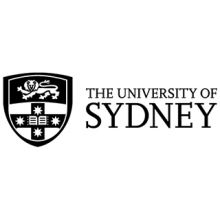In early March Mohammadhossein Esmaeili received word that the visa he had applied for some 850 days earlier, to undertake PhD studies at the University of Queensland (UQ), was on the verge of being granted. But there was a problem.
Australia’s Department of Home Affairs (DHA), which had maintained little contact with Mr Esmaeili during his 28-month wait, demanded an updated confirmation of his enrolment. UQ, which had already deferred his enrolment four times, had given him until February to take up the latest offer and was unwilling to grant another extension.
“After putting my life on hold, it appears I have missed my chance to join the UQ community by a mere few weeks,” Mr Esmaeili lamented. But the university relented and gave him a fifth extension. Three days later he received his visa.
He is not alone. Another Iranian doctoral candidate, who has received her visa after a 17-month wait, believes that at least 60 others have been given the green light since early March.
Pakistani, Indian and Chinese doctoral candidates have also been subjected to interminable visa delays. But there are signs of movement, with one administrator reporting that almost 50 per cent more Chinese students had started PhD programmes this year than in the final term of 2022. He said Iranian commencements had more than doubled.
It is thought that security concerns and visa fraud suspicions are behind the delays. DHA, which has been working to clear a backlog of stalled visa applications for much of the past year, now appears to be addressing those concerns.
But it is a big caseload, thought to include around 300 doctoral candidates from Iran alone. Times Higher Education has obtained details of 12 Iranians kept waiting for between two and three-and-a-half years for resolution of their visa applications.
Pierre Benckendorff, acting dean of the UQ Graduate School, said the delays were frustrating for administrators as well as students. “The overhead and administrative cost to universities is considerable because any delay in visa processing means we have to reissue offers of enrolment, and that’s largely a manual process.
“We’re doing that for thousands of students. Reissuing offers for scholarships also creates significant budgetary challenges. It can be very difficult to hold scholarships across calendar years.”
Professor Benckendorff described the DHA’s handling of visa applications as a mystery. “You might get an application from one person in China approved within a week, and someone else who applied on the same day waits three months. Our access to Home Affairs to discuss delays is limited.”
University of Sydney computer science lecturer Clément Canonne, whose PhD student had been waiting on a visa for nearly a year with no updates from DHA, wondered how many other supervisors were in the same situation. His tweeted query-elicited responses from more than a dozen academics in fields including nanoscience, robotics and physical chemistry, some awaiting visas for multiple PhD students for multiple years.
“The situation is incredibly frustrating to me, but I cannot even start to imagine how bad it must be for them,” one replied. “I now actively encourage international students…to hedge their bets and apply to other countries, too,” said another.
DHA did not provide March visa statistics but said almost 10,800 had been granted for postgraduate research between July 2022 and February 2023. China had attracted more of them than any other country, with Pakistan and Iran also among the top 10 recipients.
Register to continue
Why register?
- Registration is free and only takes a moment
- Once registered, you can read 3 articles a month
- Sign up for our newsletter
Subscribe
Or subscribe for unlimited access to:
- Unlimited access to news, views, insights & reviews
- Digital editions
- Digital access to THE’s university and college rankings analysis
Already registered or a current subscriber? Login












